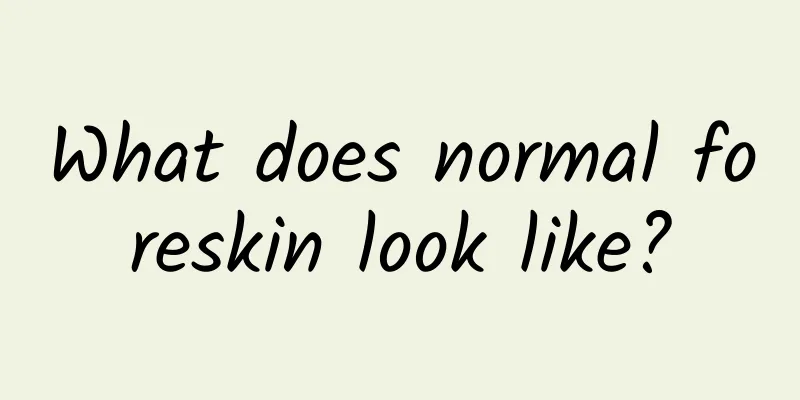What to do with eye skin allergies? Finding the cause is the key

|
If you have rashes, blisters, and other symptoms around your eyes, accompanied by itching, it means that your eye skin is allergic. The skin around the eyes is the most fragile and delicate in the human body, so if you don't pay attention, you may develop allergic symptoms. How should you treat an allergic reaction to your eye skin? 1: Causes of eye skin allergies1: Common allergic conjunctivitis When the eyes come into contact with some foreign substances that they resist or that they assume to be "harmful", they will overreact and produce allergic symptoms. For most people, allergens such as dust, animal dander, pollen and mold are very common and harmless substances, but they are enough to cause discomfort to allergic people. The main symptoms of eye allergies are swelling, redness, itching and tearing of the eyes - accompanied by sneezing, runny nose, coughing, difficulty breathing, itchy nose, congestion in the mouth or throat and nasal sinuses, which can cause headaches; if the patient's condition is severe, there may even be blurred vision and swollen eyelids. 2: Hay fever conjunctivitis A type of seasonal allergic conjunctivitis, the eyes will show symptoms of eye discomfort similar to hay fever. People living in tropical countries, such as Australia and New Zealand, are more likely to suffer from this type of conjunctivitis due to frequent exposure to pollen or vegetation; one-quarter of the population in these countries suffer from it - itchy eyes, red eyes, and tears. 3: Perennial allergic conjunctivitis As the name suggests, perennial allergic conjunctivitis recurs throughout the year. It is mostly caused by allergens such as dust mites and pet dander. Its symptoms are milder than those of hay fever conjunctivitis. 4: Contact lens allergy Contact lens allergy is not common. It is mainly caused by the local irritation of the conjunctiva of the eyeball by the lens. Once such allergy occurs, the eyes will become red and gradually itchy, and secretions may be produced, causing discomfort to the contact lens wearer. The upper eyelid area of contact lens wearers is most susceptible to infection, and there is a greater chance of developing giant papillary conjunctivitis. 2: What to do if you have eye skin allergies1: Once eyelid or eye skin allergy occurs, first determine what drug caused it and stop using it immediately. Apply cold compress with physiological saline or 3% boric acid water. Temporary treatment: oral diphenhydramine or promethazine, vitamin C, calcium, etc., and apply cortisone eye drops or eye ointment. 2: Symptoms usually subside after a few days. Remember not to touch or use this medicine again in the future. You can mark the medicine you are allergic to in red on the front page of your medical record. 3: When you discover eye allergyGo to the hospital for treatment in time. Do not use some medicines on your own, otherwise it will not only fail to achieve the therapeutic effect, but will aggravate the condition. In addition, diseases around the eyes must not be ignored. Any carelessness may endanger the eyes. |
<<: What to do if a man has erectile dysfunction? Dietary treatments for male erectile dysfunction
>>: How to deal with skin allergy itching? Chinese medicine has a folk remedy to relieve itching
Recommend
How to treat male spermatorrhea
Boys start to enter puberty at around 15, and beg...
How to insert the prostate suppository into the anus?
To perform anal embolization with prostate anus, ...
What is male testicular enlargement?
The male testicle is located in the scrotum, one ...
The secret to enhancing your sexual performance will make you as strong as a virgin in just one month!
Every man wants to have super fighting power in s...
Eat five kinds of food wisely to warm the yang, nourish the kidneys and benefit health
What is the most intolerable problem for men? I b...
My erection is not as hard as before. What's wrong?
Some people feel that their erections are not as ...
What is the reason for the small red spots on the glans penis?
For many male friends, the most troublesome and p...
Symptoms of yellow vaginal discharge in women
In real life, women's health is easily neglec...
Why does a man have back pain?
It is very common for men to have back pain in th...
Does eating betel nut affect sperm quality?
Will eating betel nut affect the quality of sperm...
How can men improve their sexual function?
About 50% of men with erectile dysfunction such a...
Sexual satisfaction determines longevity
Those who have regular sex are also less likely t...
What should I do if there is yellow pus flowing out of the male urethra? What is the cause?
The urethral opening is more prone to breeding an...
How to clean the glans penis with potassium permanganate
Potassium permanganate is a chemical solution tha...
Male Breast Pain
Many people think that mastitis is a "patent...








